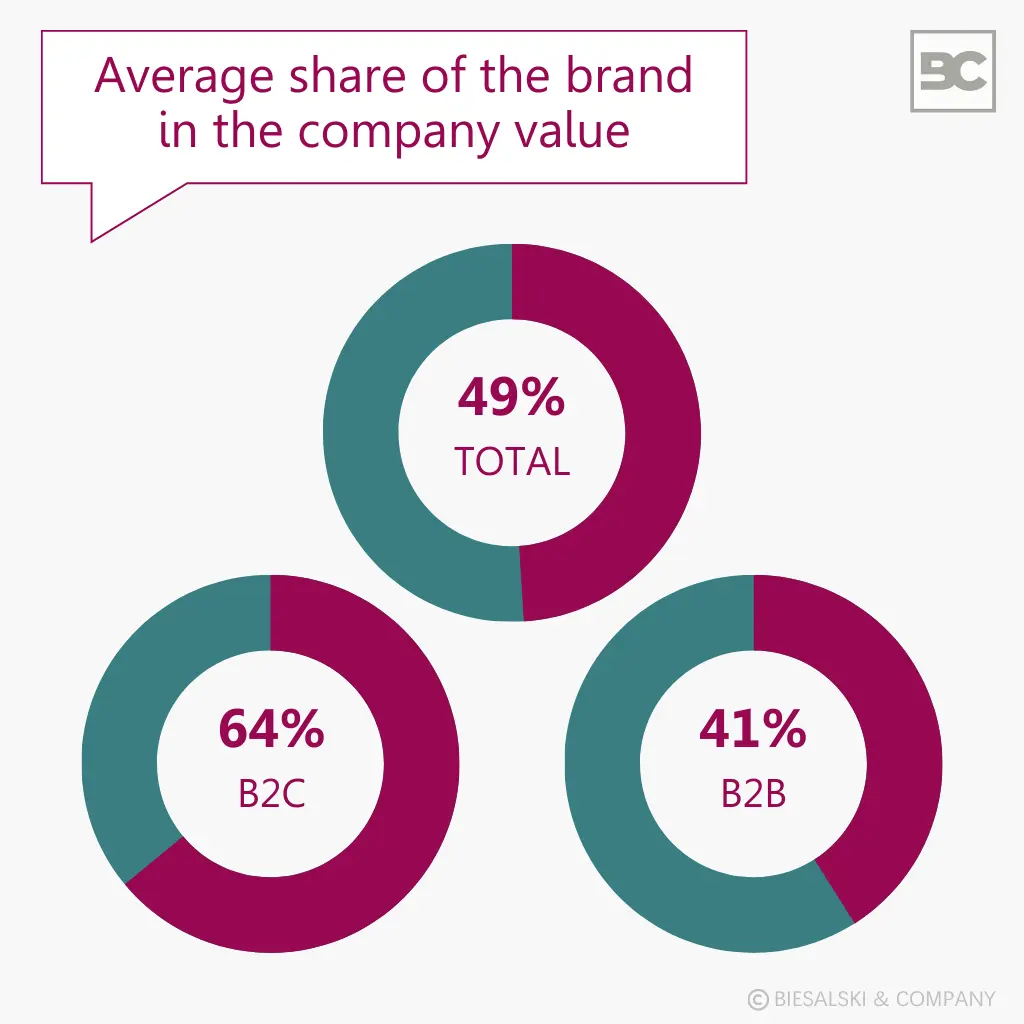B2B brands
What is meant by B2B Brands?
B2B brands (Business-to-Business brands) are companies that provide products or services specifically to other business customers.
The focus is on the relationship between companies. B2B products are used by the purchasing companies for their own production or are resold unchanged.
B2B vs. B2C Brands:
The Differences
- Target Group
B2B brands target companies as customers, while B2C (Business-to-Customer) brands target end consumers. - Brand Management
B2B brands cater to the specific needs of business customers, developing bespoke solutions and aiming to build long-term business relationships. Trust, reputation, and expertise in the respective business field play a particularly significant role.
In contrast, B2C brands focus on emotional targeting through traditional marketing methods, such as advertising. - Purchase Decision
In B2B, the purchasing decision process is often complex and lengthy, typically involving multiple decision-makers who must be convinced. Purchase decisions for B2C brands are made by end consumers more impulsively and based on personal preferences.
The Importance of B2B Brands for Companies
Building and developing a brand is also highly important in the B2B sector. B2B brands are not an ‘end in themselves’ but are a part of the company’s value. Primarily, they serve to:
1. Differentiate from the Competition
If a B2B brand stands out positively from other providers in the competitive environment, it can generate a price/volume premium. Fact: While weak brands achieve a value of around 5.3%, strong brands can even command a price up to 12.7% higher.
2. Increase the Company’s Value
A strong B2B brand can have another monetarily measurable effect: increasing the company’s value. In the B2B sector, the brand typically accounts for an average of 41% of the company’s value.

Examples of Successful B2B Brands
Successful B2B brands are characterised by strong brand positioning, the highest quality of products and services, targeted and personal design of touchpoints, and a consistent brand experience for business customers. Internationally successful B2B brands include:
§ IBM offers comprehensive IT solutions and enjoys an excellent worldwide reputation for innovation and reliability.
§ Bosch provides various industrial products and is particularly known for automotive components.
§ Siemens, a global corporation in the field of electrical engineering and automation technology.
Among the German Hidden Champions (world market leaders) that lead in their fields are:
Challenges for B2B Brands
- Emotionalisation
B2B companies can benefit from emotionally charging their brand. The decision-making process in the B2B sector is characterised by information overload and significant risks for the company and the decision-makers themselves. A strong brand can help simplify and reduce risk by providing decision-makers with security and trust. The idea that mainly rational aspects such as product technical specifications or price play a role no longer holds true exclusively. - “Good enough” vs. “Over-engineering”
B2B companies, and particularly the German hidden champions, are often said to engage in “over-engineering” in their efforts to offer the best possible products or technology. As a result, products become more expensive and may have features that do not provide added value to the user. Further growth can lie in other, lower price segments. The challenge is to pursue a “good enough” product strategy in the mid-price segment
- Attractiveness to High Potentials
B2B companies also face significant challenges in recruiting talent. They have lower brand awareness, are often located in rural areas, and frequently contend with a conservative image. Developing a comprehensive and consistent employer brand through employer branding can help address this issue.
- Purchase Decision Process
The customers of B2B brands are people who are involved in the purchasing decision process as buyers and do not buy for their own needs. Additionally, various functionaries are involved in the decision-making process, requiring more personalised relevant information.
- Personal Approach
B2B products can be highly complex and heavily customised. This results in different marketing and communication requirements. In the B2B sector, employees must be trained, and customers accompanied by stronger personal communication.


